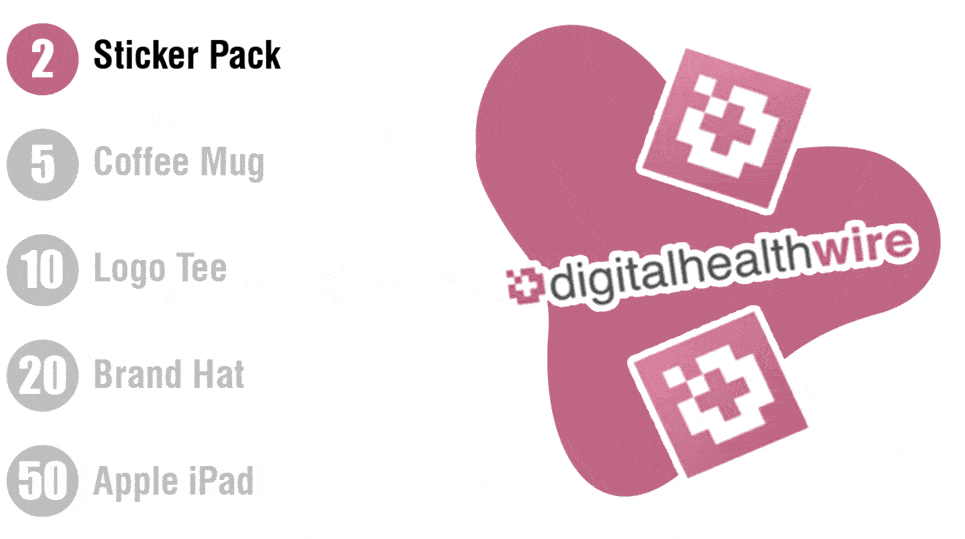|
Consumer Adoption Trends | January Margins
March 2, 2023
|
|
|

|
|
Together with
|

|
|
|
“When you want to change someone’s behavior, what works better–pain or pleasure? Most people say pleasure, but most studies show that’s not accurate. Pain is usually more powerful.”
|
|
Epic Systems CEO Judy Faulkner
|
|

|
|
The latest report from Rock Health and the Stanford Center for Digital Health showed that not even the end of the public health emergency or a looming recession could put a dent in the adoption of new health tech. All eyes are now on consumers’ wavering trust in the healthcare system to see if it’ll end the party early.
The headline stat from the 8,014 person survey was that 80% of consumers have now accessed care via telemedicine, with the largest surge in adoption coming from historically underserved groups.
- For the first time ever, telemedicine was also the preferred channel for prescription refills and minor illnesses, which could have major implications for virtual refill programs like Amazon’s new $5/mo RxPass. [Care Preferences]
- On top of that, audio-only and asynchronous telemedicine beat out point-to-point video chats as the most used modalities, and Rock Health expects typical care journeys to start including multiple modalities to leverage the strengths of each.
The second pillar of the report was that 46% of consumers now own a wearable device, a steady continuation upward from 2021 (45%) and 2020 (43%). The vast majority of those owners purchased the device themselves (85%), signaling that there’s still a ton of work to be done integrating wearables into clinical pathways for chronic condition management.
- 74% of younger respondents with higher income and higher education reported owning a wearable (down from 80% in 2020), while only 21% of older, lower income, and lower education respondents owned one (up from 17% in 2020). [Wearable Ownership]
- Those adoption stats are par for the course with any new tech and seem to be a healthy sign that wearables are continuing their shift along the technology adoption curve – from early adoption to majority acceptance.
The final highlight was an overview of consumers’ trust – or lack thereof – in the healthcare system. “Health data sharing only moves at the speed of trust, and right now it’s slow-going.”
- Consumers have grown far less willing to share health data since the start of the pandemic, with only a slim portion willing to share with research orgs (20%, 15pp decrease), tech companies (7%, 4pp decrease), and the government (8%, 4pp decrease). That’s a pretty steep drop off. [Willingness to Share Health Data]
- Not a single one of the 10 healthcare stakeholders in the survey was spared from the decline in trust, although doctors’ 70% trust rating still led the pack by a wide margin (family ranked 2nd with 51%).
|




|
|
Creating an Exceptional Engagement Experience
With a surge in experience‑oriented disruptors entering the healthcare industry, patient engagement is becoming a crucial competitive differentiator. Get your copy of Nuance’s guide to delivering intelligent interactions and a better experience at every touchpoint.
|
|
Maximize Provider Administration by Minimizing Manual Tasks
Automated provider credentialing, payor enrollment, and continuous monitoring – all under one roof. Discover how Medallion’s all-in-one platform is helping health systems maximize their provider administration by minimizing manual tasks.
|
|
- January Hospital Margin Update: Kaufman Hall’s latest National Hospital Flash Report is in, and although hospitals entered 2023 on “more stable footing” than during last year’s omicron outbreak, median margins were still down from -0.7% in December to -1% in January. Lower volumes and ED visits combined with a 3% monthly rise in labor costs to drag down margins, but Kaufman Hall expects that hospitals making purchases for the year in January contributed to the shaky performance. Last year’s numbers are scary to look at.
- Headway Closes In On $100M: Bloomberg broke the story that telemental health startup Headway is in talks to raise $100M at a $1B valuation, which would make it the first unicorn of its kind in 2023. Headway last raised a $70M Series B in 2021 and has since expanded its network of covered therapists to 15 states. By working with payors such as Aetna, Anthem, Cigna, Oxford, UnitedHealthcare, and Oscar, Headway is aiming to improve access to mental healthcare with $20-$50 therapy sessions as opposed to the $200+ it can cost to see an out of network provider.
- $1M Hospital Smear Campaign: A mysterious group has been financing a campaign to disparage New York-based Maimonides Medical Center, with $1M worth of Craigslist-hired protesters and advertising calling for a change of leadership. The New York Times uncovered that the group behind the campaign was called Save Maimonides, although the hospital’s CEO Kenneth Gibbs thinks that’s quite the misnomer. Gibbs believes the barrage originated with a wealthy nursing home operator looking to take over the hospital, and the full story is worth checking out if you want a dose of healthcare gossip.
- America’s Biggest Health Concerns: The Axios-Ipsos American Health Index – based on a nationally representative poll of 1,213 US adults – found that Americans view opioids (26%), obesity (21%), and gun violence (17%) as the largest threats to public health, with a wide buffer between former leaders like cancer (12%) and tobacco use (3%). The demographic breakdowns told an interesting story: those without a college degree were 3x more likely to view opioids as the most pressing health concern, while those with higher education saw obesity as the bigger issue.
- KeyCare Enters Florida: KeyCare is partnering with Memorial Healthcare System to let patients conduct appointments with virtual providers directly within their MyChart portals via the MemorialDOCNow platform. KeyCare’s Epic-native platform allows health systems to optimize capacity and support their care teams with a nationwide network of virtual care groups. Memorial is KeyCare’s first health system partner in Florida, as well as the first to go live with its pediatric care services.
- CodaMetrix Lands $55M: Revenue cycle service provider CodaMetrix landed $55M in Series A funding to build out “as many specialty areas with as high quality in as short a time as possible – in that order,” according to an Axios interview with CEO Hamid Tabatabaie. CodaMetrix contracts with health systems to automate specific specialties (radiology, pathology, surgery, gastroenterology), combining machine learning and natural language processing to turn clinical notes into billing and diagnostic codes.
- Remote Scribes Reduce Burnout: A remote scribe pilot at the University of Wisconsin reduced burnout among PCPs by 26.8% in less than six months, impressive results highlighting that there’s still a role for human support as new documentation tech is developed. After pairing 37 physicians with a remote scribe through an audio-only cell connection to help document appointments (160 control physicians), researchers found that physicians with scribes reported “significant improvements” in wellness versus those without, no doubt related to the 66 minutes of reduced EHR work for every eight hours of patient time.
- GLP-1s Are More Than a TikTok Trend: Ro Chief Clinical Officer Tzvi Doron penned a Fast Company article warning people not to look at GLP-1 weight loss medications as a social media fad, but as a clean slate for how we treat one of the most common chronic conditions in the US: obesity. Doron makes the case that the influencer-fueled shortage of the drugs is causing rampant weight bias against real patients in search of real medication. “The answer to drug shortages should never be to pit patients with different diseases against each other. The answer to drug shortages should be to fix the shortages.”
- Memora + Moffitt: Memora Health is bringing two-way text support to patients at Moffitt Cancer Center in an effort to protect provider bandwidth and create a more high-touch oncology care experience. The partnership is designed to help patients adhere to their care plans by providing around the clock SMS-based support, while intelligently triaging concerns to appropriate providers only when necessary.
- Healthcare AI Discomfort: Sixty percent of US adults in a massive new Pew Research survey (n=11k) would feel uncomfortable if their healthcare providers relied on AI for their treatment, while 33% expect AI to lead to worse outcomes and 57% believe it will hurt patient-provider relationships. On the bright side, the respondents were more likely to believe AI would reduce provider mistakes than increase their mistakes (40% vs. 27%) and AI is more likely to improve care inequalities than exacerbate them (51% vs. 15%).
- Quil Health Ceases Operations: Aging-in-place startup Quil Health recently ceased operations on February 24, a somber reminder that now’s about the time we’ll start to see companies reach the end of their pandemic funding runway. Quil was formed in 2018 as a joint venture between Independence Health Group and Comcast to support care-at-home for seniors with medical alert and monitoring tools.
|
|
The New Staffing Landscape With connectRN
Flexibility is a key component of enabling nurses to deliver their best care without getting burned out. In this Digital Health Wire Q&A, we sat down with connectRN CEO Ted Jeanloz to discuss technology’s role in solving healthcare’s staffing challenges and the new ways that human-centered design can help support nurses.
|
|
Clear Arch Health Unlocks Turnkey Virtual Care
Clear Arch Health’s turnkey remote patient monitoring and PERS solutions are fully customizable to meet the unique needs of every organization. Discover how Clear Arch Health is helping hospitals, physicians groups, and home health agencies effectively manage patient care – whenever and wherever it’s needed.
|
|
Selecting Your Drug Database and Clinical Decision Support Solution
Do your providers need easy access to real-time drug knowledge and clinical decision support? Join Synapse Medicine CEO Clement Goehrs, MD, MSc on March 8th to discover the key factors to consider when selecting the right drug database and CDS solution for your health tech product.
|
|
|
Share Digital Health Wire
|
|
Spread the news & help us grow ⚡
|
|
Refer colleagues with your unique link and earn rewards.
|

|
|
|
|
Or copy and share your custom referral link: *|SHAREURL|*
|
|
You currently have *|REFERRALS|* referrals.
|
|
|
|
|